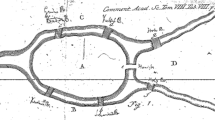Abstract
I argue that one good reason for Scientific Realists to be interested in correspondence theories is the hope they offer us of being able to state and defend realistic theses in the face of well-known difficulties about modern physics: such theses as, that our theories are approximately true, or that they will tend to approach the truth. I go on to claim that this hope is unlikely to be fulfilled. I suggest that Realism can still survive in the face of these difficulties, as a claim about the kind of theories we want to aim for. I relate this conception of Realism to various contemporary discussions, both by realists and antirealists.
Similar content being viewed by others
References
Boyd R. (1973). Realism, underdetermination, and a causal theory of evidence. Nous 7:1–12
Churchland P., Hooker C. A. (Eds.). (1985). Images of science: Essays on realism and empiricism, with a reply from Bas C. van Fraassen. University of Chicago Press, Chicago
Fine, A. (1996a). The natural ontological attitude. In The shaky game: Einstein, realism, and the quantum theory (2nd ed., pp. 112–136). Chicago: University of Chicago Press
Fine, A. (1996b). Einstein’s realism. In The shaky game: Einstein, realism, and the quantum theory (2nd ed., pp. 86–112). Chicago: University of Chicago Press.
van Fraassen, B. C. (1980). The scientific image. Oxford: Clarendon Press; New York: Oxford University Press
Horwich P. (1998)Truth (2nd ed). Oxford: Clarendon Press; New York: Oxford University Press
Kaplan M. (1991). Epistemology on holiday. Journal of Philosophy 88:132–154
Kitcher P. (2002). On the explanatory role of correspondence truth. Philosophy and Phenomenological Research 64(2):346–364
Kitcher P. (2001). Real realism; the Galilean strategy. Philosophical Review 110(2):151–197
Kukla A. (1998). Studies in scientific realism. Oxford University Press, New York
Ladyman J., Douven I., Horsten L., van Fraassen B.C. (1997). A defence of van Fraassen’s critique of abductive reasoning: reply to psillos. Philosophical Quarterly 47(188):305–321
Leeds S. (1995). Truth, Correspondence, and Success. Philosophical Studies 79(1):1–36
Leeds, S. (2006). Correspondence Truth and Scientific Realism. The longer version of the present paper, available online at the PhilSci Archive http://philsci-archive.pitt.edu/
Leplin J. (1997). A novel defense of scientific realism. Oxford University Press, New York
Musgrave A. (1989). NOA’s Ark—Fine for realism. Philosophical-Quarterly 39:383–398
Psillos S. (2002). Scientific realism. McGill-Queen’s University Press, Montreal



